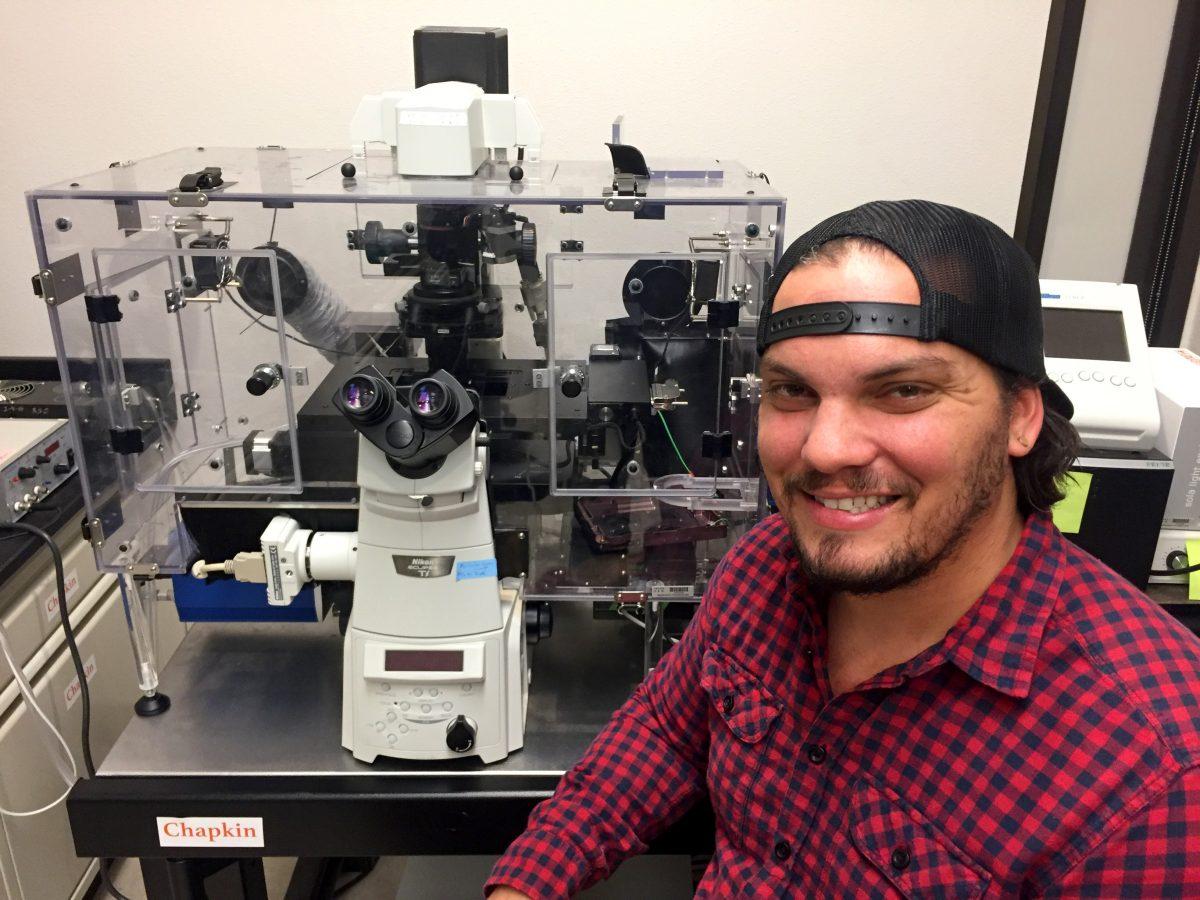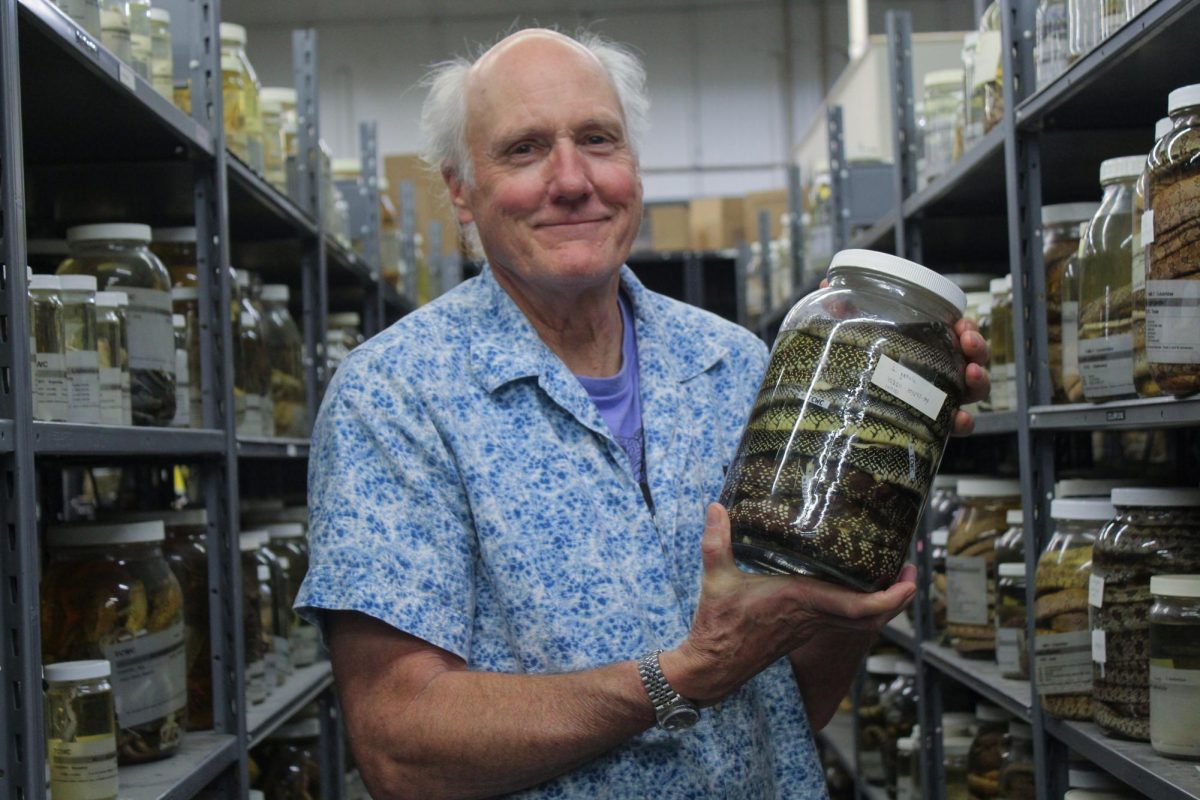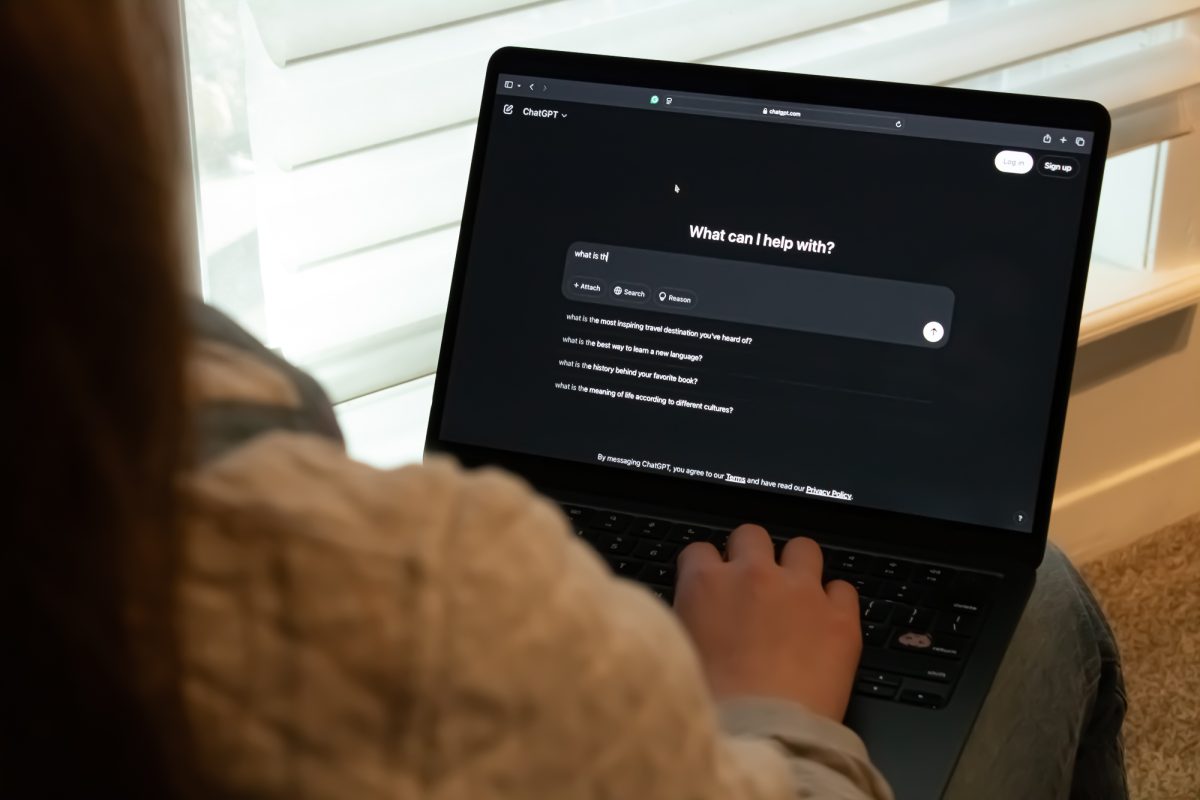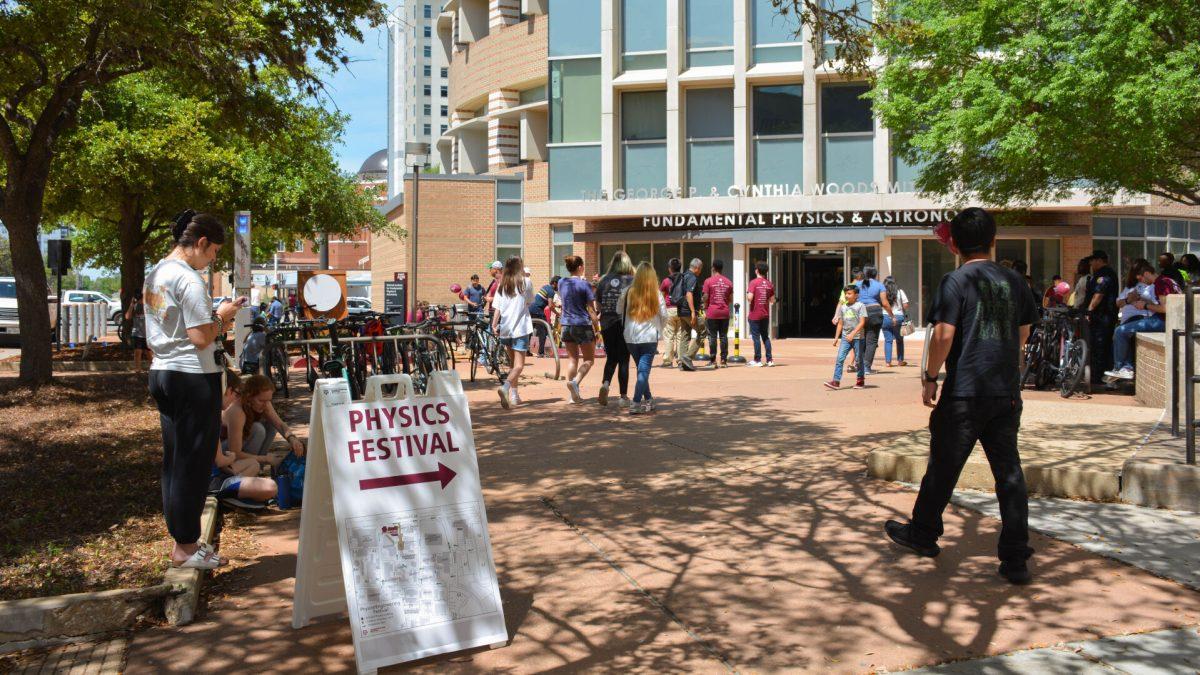The National Institutes of Health (NIH) and the Ford Foundation have recently chosen Alfredo Erazo-Oliveras, a Texas A&M University College of Agriculture and Life Sciences postdoctoral research associate, to receive an NIH research award and a Ford fellowship, respectively.
Reflecting the awards’ selective nature, Robert Chapkin, regents fellow and AgriLife senior faculty fellow in the Department of Nutrition and Food Science said how rare it is to receive such awards simultaneously.
“Both the NIH and the Ford Foundation recognize the quality of Dr. Erazo-Oliveras’ work as well as the promise he shows as a researcher,” Chapkin said. “These honors help to foster needed diversity in the U.S. research community.”
Erazo-Oliveras graduated with a bachelor of science in Chemistry and Environmental Sciences in 2008 from the University of Puerto Rico at Río Piedras. Additionally, he graduated with a doctorate in Biochemistry and Biophysics from Texas A&M University in 2014. He has been a postdoctoral Biochemistry and Cell Biology researcher in the Chapkin Lab at Texas A&M University since 2016.
“I am a native of Puerto Rico and grew up in the small rural town of Naranjito,” Erazo-Oliveras said. “My interest for science and also experimenting began at an early age. I remember reading and enquiring about the ingredients on all the item labels. My parents also played a very important role in supporting me.”
Erazo-Oliveras works in the Chapkin Lab, a College of Agriculture and Life Sciences program in integrative nutrition and complex diseases. The lab, which is run by Chapkin, focuses on dietary and microbial enhancers related to the prevention of cancer and chronic inflammatory diseases.
“Our central goal is to understand cancer chemoprevention at a fundamental level, and to test pharmaceutical agents in combination with dietary and microbial, countermeasures to the Western diet, to more effectively improve gut health and reduce systemic chronic inflammation,” Chapkin said.
According to the NIH, the National Cancer Institute (NCI) Research Supplement to Promote Diversity in Health-Related Research Postdoctoral Award supports the research training of students, post-bachelor, master’s individuals, postdoctoral fellows and faculty investigators who are members of an underrepresented group. Supplement applications are reviewed internally at NCI based on scientific merit and training potential.
“There was a lot of support that went to applying for these awards, ” Erazo-Oliveras said. “These awards are usually very competitive and even though I am the one who received these awards, there was a whole group of people behind me who were supporting me.”
This research award will provide $315,205 to Erazo-Oliveras over three years. Erazo-Oliveras explained that he intends to research how molecular mechanisms at the cellular level affect how tumors are formed in the digestive tract, specifically in the colon. He hopes his work will one day be used in cancer prevention.
Similarly, the Ford Foundation fellowships seek to increase the diversity of the nation’s college and university faculties by increasing their ethnic and racial diversity, to maximize the educational benefits of diversity, and to increase the number of professors who can and will use diversity as a resource for enriching the education of all students.
“Diversity is very important in research,” Erazo-Oliveras said. “It is important to have programs like these so that we can hopefully have more minorities getting into research.”
Erazo-Oliveras will receive a $45,000 stipend from the Ford Foundation. In addition, he will be provided financial support to attend the annual National Conference of Ford Fellows in San Juan, Puerto Rico in May 2018, as well as career mentoring and networking support from former Ford fellows.
“The support you receive as a young researcher can really make a difference,” said computer engineering senior Xuan Ding, who has conducted research as an undergraduate. “It’s not just funding, but also in terms of professional help and career advice. Research can be challenging depending on who you have access to.”
Ford Foundation Honors Texas A&M Postdoctoral Researcher
November 20, 2017
Photo by Provided
Alfredo Erazo-Oliveras, a Texas A&M University postdoctoral research associate, to receive an NIH research award and a Ford fellowship.
0
Donate to The Battalion
$2065
$5000
Contributed
Our Goal
Your donation will support the student journalists of Texas A&M University - College Station. Your contribution will allow us to purchase equipment and cover our annual website hosting costs, in addition to paying freelance staffers for their work, travel costs for coverage and more!
More to Discover










